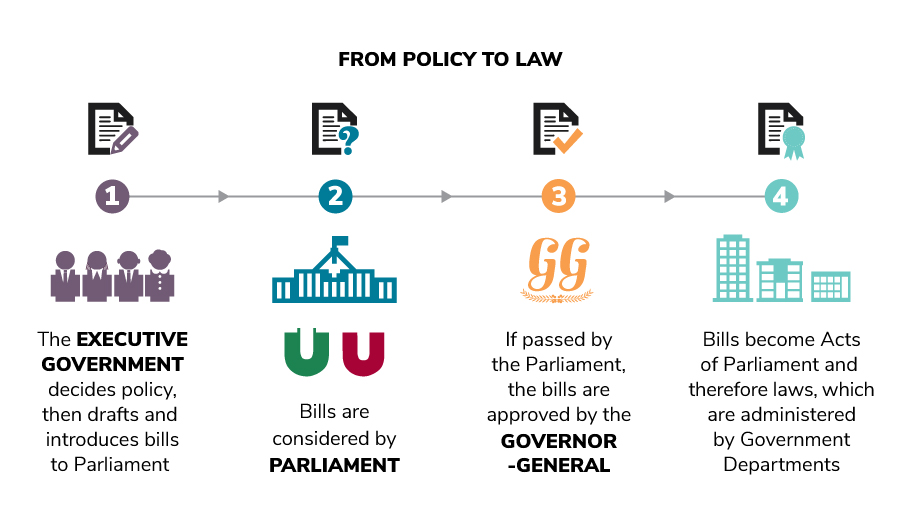How A Bill Becomes A Law
The executive
(Prime Minister and Cabinet)
Policy is decided by the executive government, which then creates and presents bills to parliament. The prime minister and senior ministers meet to decide which bills they want to introduce to the parliament. This happens in a cabinet meeting.
Parliament
(House of Representatives and the Senate)
The parliament considers bills. Members now give speeches outlining their opinions on the bill. The bill may be sent to a committee for further study by the senate and house of representatives. The committee asks experts, interest organizations, and community members for information regarding the bill. Following that, the committee writes a report that is delivered to the house of representatives. When determining whether to support the plan, members may consider the evidence gathered during the committee's study. During the ‘consideration in detail,’ People debate and make amendments. Amendments are made if people want to make changes after debate. People vote by saying “aye” or “no”. The bill, if approved by the house of representatives, is sent to the senate where a similar process applies.
Governor General
(Kings Representative)
The governor general approves the bills if they are accepted by the parliament. who grants them the royal assent.The governor general has the power to appoint a prime minister if a federal election has not resulted in a clear outcome and can also dismiss a prime minister if they have lost the support of the majority of the House of Representatives. Until a Bill is formally approved by the Governor-General, it remains a Bill passed by the Australian Parliament. The term "Royal Assent" refers to this specific legal procedure.
The Departments
(E.g Department of Home Affairs)
Government departments are responsible for implementing laws that come from bills, which are acts of parliament. For example, the departments have the responsibility of getting the word out about the new voting age. They can do this by making newspaper articles, news interviews, starting social media campaigns and informing schools. They would also need to add 16s into the electoral roll.
